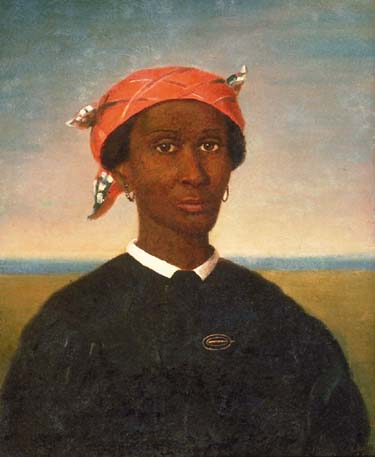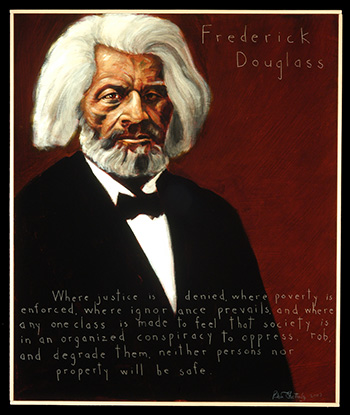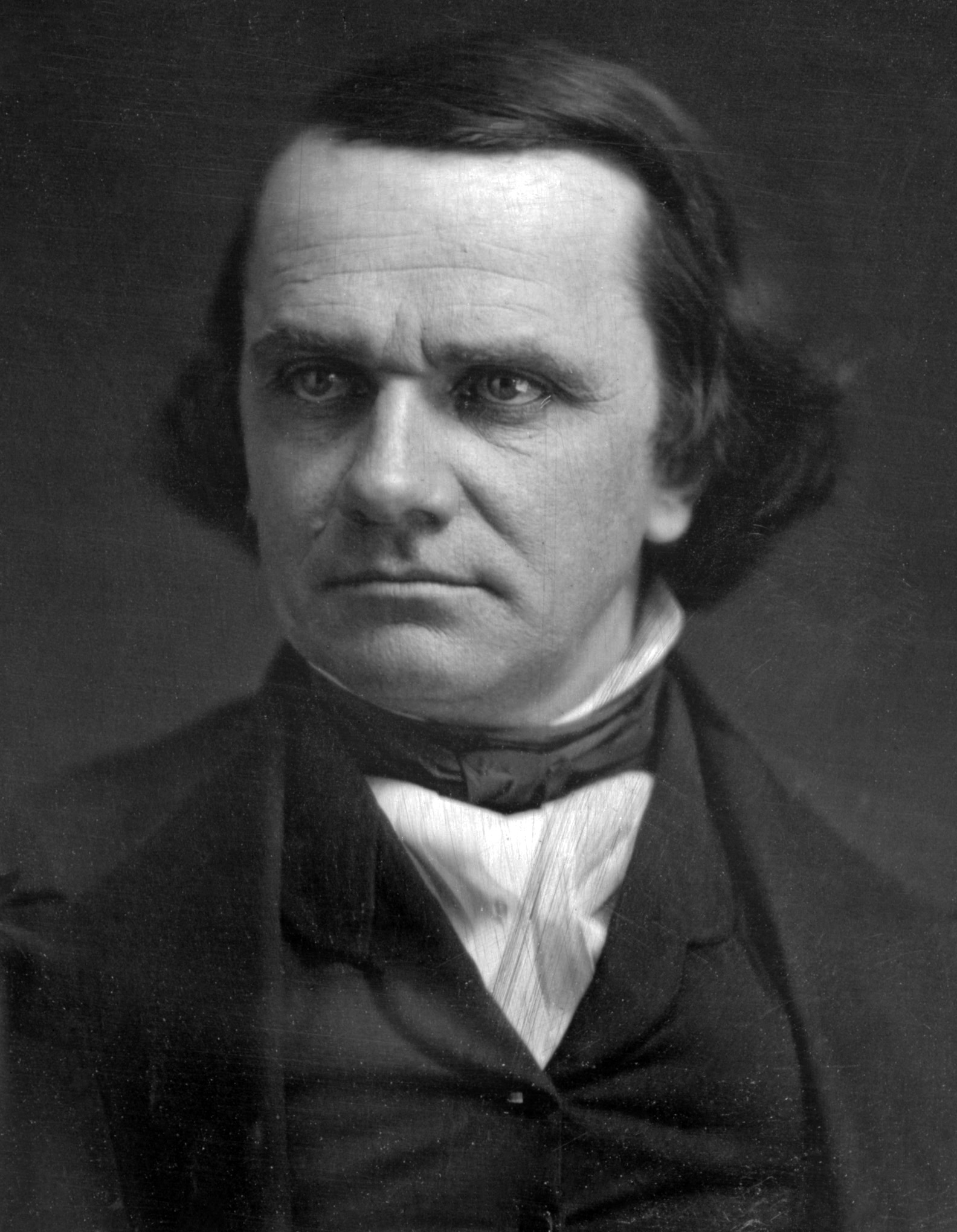The Douglases and Slavery
This page forms part of a section covering aspects of
slavery, white and black, and the Douglases involved. Perhaps I
should devote equal space to the Douglases and the
Enlightenment, or Douglases and the Covenanters, and other
subjects, and one day maybe I will, but this topic fascinates
me.
The Act of Union in 1707 gave
Scottish merchants access to the slave trade. Scots travelled out to the
colonies and generated great wealth for Scotland based on slave labour.
In 1817 Scots owned almost a third of all the slaves in Jamaica. The
'Tobacco Lords' made their fortunes in the colonies before returning to
Scotland, many building large mansions.
During his tour of
Scotland in 1846 Frederick Douglass, the former slave and anti-slavery
campaigner, demanded that the Free Church 'send back the money'.
The Free Church was founded in 1843 and was deprived of public money. It
raised some funds from slave-owning Presbyterian churches in the United
States.
Many people felt that the Free Church was therefore
sympathetic to the slave-owners and opposed to the emancipation of the
slaves. 'Send back the money' became a popular rallying cry at
Douglass's meetings in Scotland.
We tend to be very proud of
Scotland’s role in abolishing the slave trade, with parliament passing
the Abolition of the Slave Trade Act in 1807, but Scotland also played
an integral role in the development of slavery in the 250 years leading
up to this.
Standing as testament to the wealth generated by that
association, rows of opulent Georgian townhouses that were once owned by
the wealthy plantation merchants, tobacco lords and slave-traders can
still be seen in Scotland’s major cities. Street names such as Jamaica
Street (Glasgow) also nod to our associated heritage. The stained glass
windows of Glasgow Cathedral were paid for with Douglas wealth generated
in the West Indies.
There were
an extraordinarily high proportion of Scottish plantation owners in St
Kitts and Jamaica, as well as Virginia in the American colonies.
Scottish merchants and investors fuelled the trade in slavery. Scottish
slave traders such as Richard Oswald organised large scale ventures to
capture, transport and sell slaves, with voyages leaving from all the
main UK ports.
Voyages such as these transported 3.4 million (of
the 10 million) African slaves to slavery in the colonies in America and
the Caribbean. Shocking as this is, these statistics are a reasonably
well-known and documented part of our history.
What is perhaps
less well known are the large numbers of Scottish people, perhaps as
many as 100,000, that were rounded up and transported to the colonies to
be sold into slavery.
According to the Egerton manuscript (held
by the British Museum):
“It may be lawful for two or more
justices of the peace within any county, citty or towne, corporate
belonging to the commonwealth to from tyme to tyme by warrant cause to
be apprehended, seized on and detained all and every person or persons
that shall be found begging and vagrant. in any towne, parish or place
to be conveyed into the Port of London, or unto any other port from
where such person or persons may be shipped into a forraign collonie or
plantation.”
Affluent and powerful local government officials,
who likely had a stake in the plantations, slave trade and the
associated benefits, were happy to oblige. The poor, homeless and
irksome Scottish people were rounded up – or simply kidnapped – to be
sold for a great profit on arrival at their destination. Children were
no exception:
Political prisoners were routinely sold into
slavery, and The Act of Proscription (1746) stated that anyone wearing
tartan or Highland dress was subject to transportation. Conditions on
the ships were appalling, and many would not survive the long, gruelling
sea crossing and the cruel treatment meted out.
Merchants were
known to put in special requests to the city council to fulfil specific
wants and requirements for the procurement of slaves. Young women were
often on the wish list, and it doesn’t take a stretch of the imagination
to guess at the awful indecencies and treatment that these women endured
to amuse the sailors during the long voyages.
As early as the
1600’s, ships from Leith and Port Glasgow in Scotland sailed off to the
colonies laden with Scottish people that had been rounded up to be sold
at the block to line the pocket of their compatriots. The numbers taken
as slaves must have been huge as, according to the Calendar of State
Papers, Colonial Series, America and West Indies of 1701, we read of
there being there being an estimated 25,000 slaves in Barbados, of whom
21,700 were white. The fair-skinned slaves were known as Redlegs or
Redshanks by the locals because of their sunburned flesh.
It was
upon the sweat and tears of these unfortunate people that the British
economy was driven forward and thrived.
Descendants of the Scots
forced into slavery are now beginning to realise that it a part of our
history that has been quietly swept under the carpet, and are
understandably feeling very angry. Pressure groups are looking for an
official apology, and there is even a Scottish Slave Facebook page that
is an “open group to all who believe they are descendents of the
Scottish slaves, and all who support the recognition that this happened
and demand an apology from the government”.
It is certain that a
good few Scottish individuals were appalled by the slave trade and were
ultimately integral in the abolition of the slave trade. Scotland,
however, was not an innocent bystander and did play a very active role
in the procurement, transportation and selling of slaves.
|
Frederick Douglass (1817 - 1985)
"Once let the black man get upon his person the
brass letters, U.S., let him get an eagle on his button,
and a musket on his shoulder and bullets in his pockets,
and there is no power on earth which can deny that he
has earned the right to citizenship in the United
States."
American orator and journalist, Frederick Douglass was
born in Tuckahoe, Talbot county, Maryland, probably in
February 1817. His mother was a negro slave of
exceptional intelligence, and his father was a white
man.
In 1871 he was assistant secretary of the
Santo Domingo commission, appointed by President Grant.
He was marshal of the District of Columbia from 1877 to
1881, was recorder of deeds for the district from 1881
to 1886, and from 1889 to 1891 was the American minister
resident and consul-general in the Republic of Haiti.
Read more of this remarkable story..
|
|
Stephen Arnold Douglas,(1813-1861)
U.S. Representative/Senator, Stephen Arnold Douglas, in the bitter
debates concerning the keenly disputed question of the
permission of slavery in the territories, was particularly
prominent. Against slavery itself he, seems never to have had
any moral antipathy; he married (1847) the daughter of a
slaveholder, Colonel Robert Martin of North Carolina, and a
cousin of Douglas’s colleague in Congress, D. S. Reid; and his
wife and children were by inheritance the owners of slaves,
though he himself never was.
Read more about
Stephen Arnold Douglas>>>
|



Virginia Gazette and Weekly Advertiser
(Nicolson),
Richmond, January 11, 1787.
Ten Guineas
Reward. RUNAWAY from Providence Forge in New Kent county JIM
or JAMES, a light coloured mulatto, a blacksmith by trade,
about 5 feet 7 or 8 inches high, bow legged, a likely well
made fellow, has lost most of his teeth, and has something
of a frown on his countenance, sensible and fond of liquor.
As he has a great variety of good cloaths it is altogether
uncertain what may be his dress, there is some reason to
believe he may be gone towards Fredericksburg where he
formerly lived, and I think will endeavour to pass for a
freeman. The above reward will be paid if taken up at the
distance of 50 miles and delivered to the subscriber, or 5
l. for apprehending and committing to prison, or in
proportion for a smaller distance. WILLIAM DOUGLASS.
Providence Forge, November 14, 1786. |
Further reading

Any contributions will be
gratefully accepted
Errors and Omissions
|
|
The Forum
|
|
What's new?
|
|
We are looking for your help to improve the accuracy of The Douglas
Archives.
If you spot errors, or omissions, then
please do let us know
Contributions
Many articles are stubs which would benefit from re-writing.
Can you help?
Copyright
You are not authorized to add this page or any images from this page
to Ancestry.com (or its subsidiaries) or other fee-paying sites
without our express permission and then, if given, only by including
our copyright and a URL link to the web site.
|
|
If you have met a brick wall
with your research, then posting a notice in the Douglas Archives
Forum may be the answer. Or, it may help you find the answer!
You may also be able to help others answer their queries.
Visit the
Douglas Archives Forum.
2 Minute Survey
To provide feedback on the website, please take a couple of
minutes to complete our
survey.
|
|
We try to keep everyone up to date with new entries, via our
What's New section on the
home page.
We also use
the Community
Network to keep researchers abreast of developments in the
Douglas Archives.
Help with costs
Maintaining the three sections of the site has its costs. Any
contribution the defray them is very welcome
Donate
Newsletter
If you would like to receive a very occasional newsletter -
Sign up!
Temporarily withdrawn.
|
|
|
|
|
|
|
|
|


